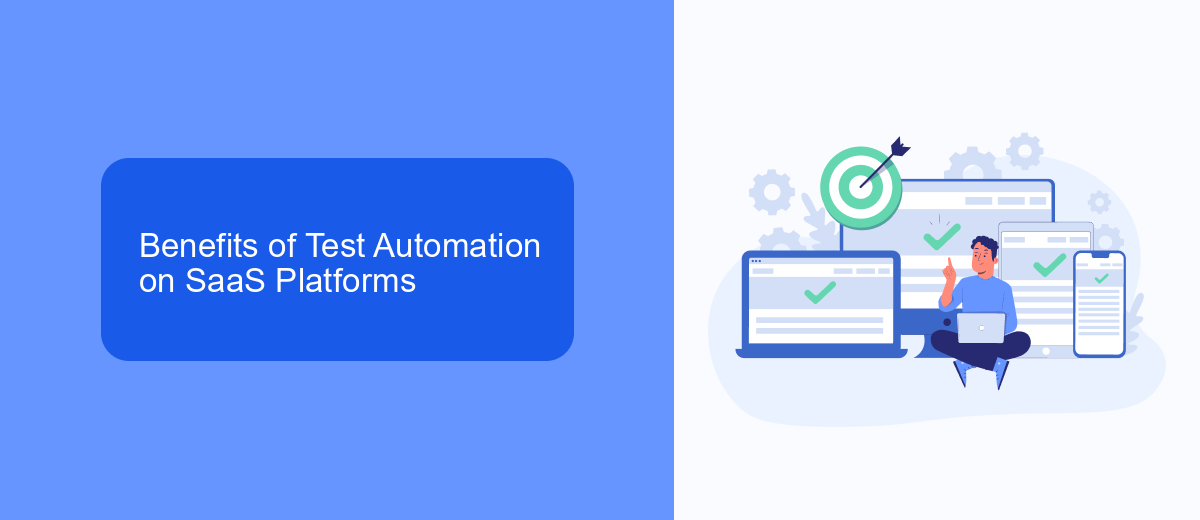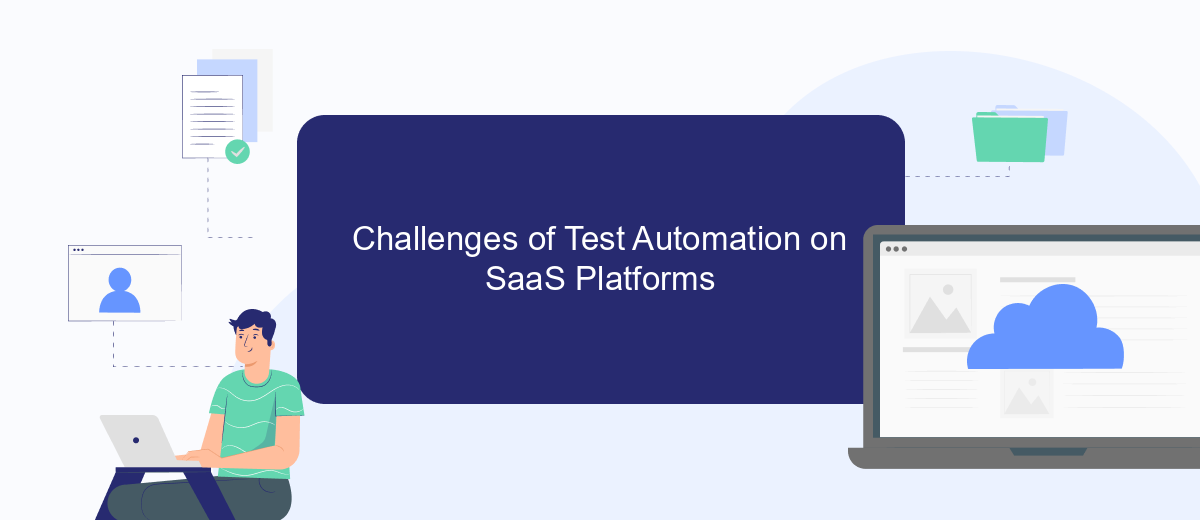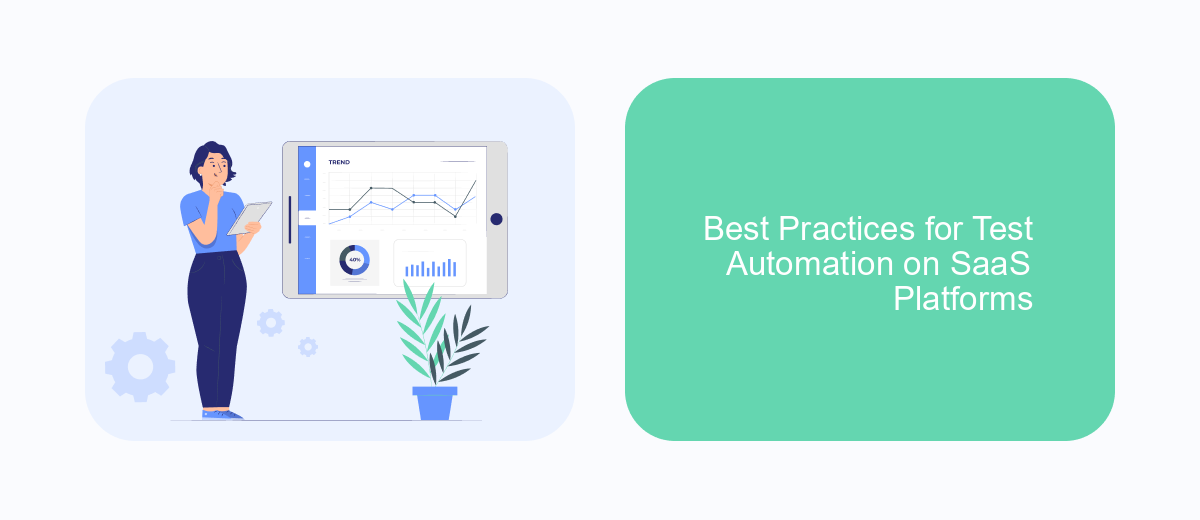Test automation on a SaaS platform is revolutionizing how businesses ensure software quality and reliability. By leveraging cloud-based solutions, companies can streamline their testing processes, reduce manual effort, and accelerate release cycles. This approach not only enhances efficiency but also ensures scalability and flexibility, allowing teams to adapt to evolving requirements. In this article, we explore the benefits and best practices for implementing test automation in a SaaS environment.
Introduction
In today's rapidly evolving technological landscape, Software as a Service (SaaS) platforms have become indispensable for businesses seeking scalable and efficient solutions. As these platforms grow in complexity and user base, ensuring the quality and reliability of software through test automation becomes crucial. Test automation not only accelerates the development process but also enhances the overall user experience by quickly identifying and addressing potential issues.
- Improved efficiency and speed in testing processes.
- Increased test coverage and accuracy.
- Reduction in manual testing efforts and associated costs.
- Enhanced ability to perform regression testing.
- Facilitation of continuous integration and delivery.
By implementing test automation on a SaaS platform, organizations can achieve a higher level of consistency and reliability in their software offerings. This approach not only supports agile development methodologies but also empowers teams to focus on innovation and delivering value to their customers. As a result, companies can maintain a competitive edge in the market while ensuring their software meets the highest quality standards.
Benefits of Test Automation on SaaS Platforms

Test automation on SaaS platforms offers numerous benefits, significantly enhancing the efficiency and reliability of software development processes. One of the primary advantages is the ability to execute repetitive tests quickly and accurately, which reduces the time and effort required for manual testing. This leads to faster release cycles and improved software quality. Automated tests can run 24/7, ensuring that any issues are identified and addressed promptly, minimizing downtime and enhancing user satisfaction. Moreover, the scalability of SaaS platforms allows for easy expansion of testing capabilities as the application grows, accommodating a larger user base without compromising performance.
Another significant benefit is the seamless integration with other tools and services, such as SaveMyLeads. This service facilitates the automation of data flows between various applications, streamlining the testing process by ensuring that the most current data is always available for testing scenarios. By automating these integrations, teams can focus on more strategic tasks rather than manual data entry, further enhancing productivity. Additionally, automated testing on SaaS platforms supports continuous integration and delivery (CI/CD) practices, enabling teams to deliver features and updates more consistently and reliably, ultimately driving business growth and customer satisfaction.
Challenges of Test Automation on SaaS Platforms

Test automation on SaaS platforms presents unique challenges that require careful consideration and strategic planning. These platforms often involve complex, dynamic environments that are continuously updated, making it difficult to maintain stable and reliable test scripts. Additionally, the multi-tenant architecture of SaaS platforms can introduce variability in user interfaces and data, complicating the automation process.
- Frequent Updates: SaaS platforms are updated regularly, which can break existing test scripts and require constant maintenance.
- Multi-Tenancy: Different configurations and user roles across tenants can lead to inconsistencies in test results.
- Data Privacy: Ensuring data privacy and security during testing can be challenging, especially when dealing with sensitive information.
- Integration Complexity: SaaS platforms often integrate with other services, necessitating comprehensive testing across multiple systems.
Overcoming these challenges requires a robust test automation strategy that includes the use of flexible and adaptive test frameworks, continuous monitoring of test environments, and collaboration between development and testing teams. By addressing these issues proactively, organizations can enhance the efficiency and effectiveness of their test automation efforts on SaaS platforms.
Best Practices for Test Automation on SaaS Platforms

Implementing test automation on SaaS platforms requires a strategic approach to ensure efficiency and reliability. The dynamic nature of SaaS environments means that test automation must be adaptable and robust to handle frequent updates and changes in the software.
To begin with, it's crucial to select the right tools that align with the specific requirements of your SaaS platform. This involves considering factors such as integration capabilities, ease of use, and scalability. Additionally, maintaining a comprehensive test suite that covers various scenarios is essential to identify potential issues early in the development cycle.
- Choose a flexible test automation framework that supports continuous integration and delivery.
- Regularly update and refactor test scripts to accommodate platform changes.
- Leverage cloud-based testing environments for scalability and cost-effectiveness.
- Incorporate end-to-end testing to validate user workflows and system interactions.
- Utilize AI and machine learning for smarter test execution and maintenance.
By adhering to these best practices, organizations can enhance the reliability and efficiency of their test automation efforts on SaaS platforms. This not only improves software quality but also accelerates the delivery of new features and updates to end-users.
Conclusion
In conclusion, implementing test automation on a SaaS platform significantly enhances the efficiency and reliability of software delivery. By automating repetitive and time-consuming testing processes, teams can focus on more complex tasks, thereby improving overall product quality and accelerating time-to-market. The scalability of SaaS platforms allows for seamless integration of test automation tools, ensuring that testing can evolve alongside the application’s development. This adaptability is crucial in today’s fast-paced digital environment, where rapid iterations and continuous delivery are paramount.
Moreover, the integration of services like SaveMyLeads can further streamline the test automation process by simplifying data management and communication between various applications. By facilitating seamless integrations, such services reduce the potential for errors and enhance the overall workflow efficiency. As organizations continue to adopt test automation in their SaaS platforms, leveraging such tools will be instrumental in maintaining a competitive edge, ensuring that products are not only delivered faster but also meet the highest quality standards.
FAQ
What is test automation on a SaaS platform?
Why is test automation important for SaaS platforms?
How can I integrate test automation with other services?
What are the challenges of implementing test automation on a SaaS platform?
How do I choose the right test automation tools for my SaaS platform?
If you use Facebook Lead Ads, then you should know what it means to regularly download CSV files and transfer data to various support services. How many times a day do you check for new leads in your ad account? How often do you transfer data to a CRM system, task manager, email service or Google Sheets? Try using the SaveMyLeads online connector. This is a no-code tool with which anyone can set up integrations for Facebook. Spend just a few minutes and you will receive real-time notifications in the messenger about new leads. Another 5-10 minutes of work in SML, and the data from the FB advertising account will be automatically transferred to the CRM system or Email service. The SaveMyLeads system will do the routine work for you, and you will surely like it.
